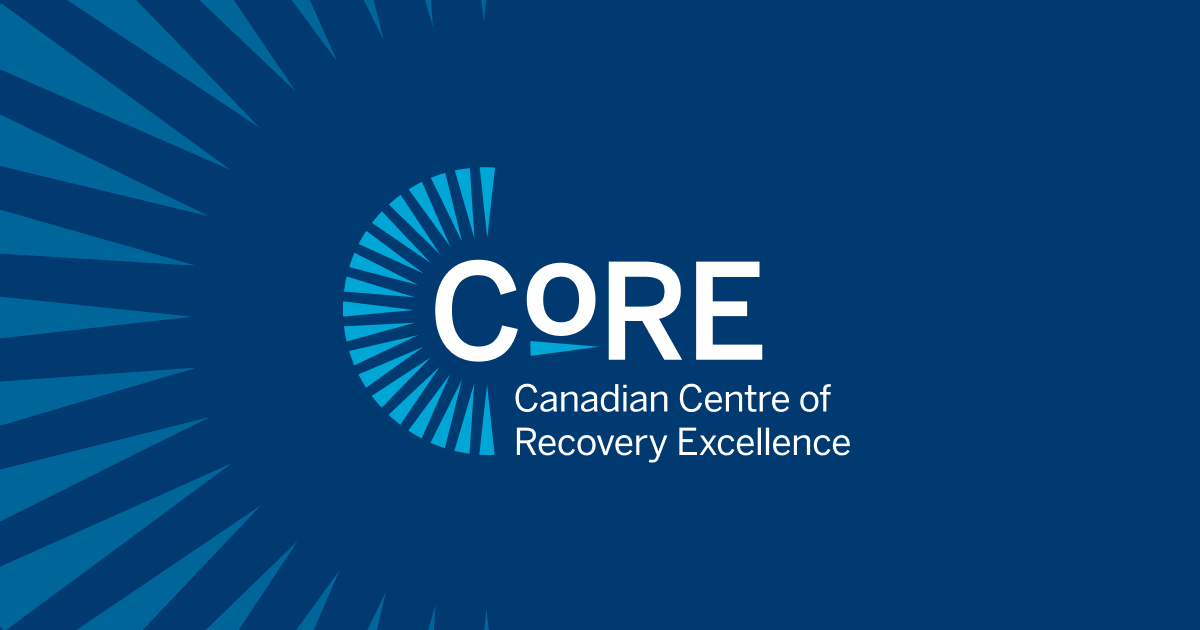

Dr. Nathaniel Day, MD CCFP Dip. ABAM CHE
Dr. Nathaniel Day is the Chief Scientific Officer at the Canadian Centre of Recovery Excellence, providing expert guidance on program evaluation and development. Dr. Day is an addiction medicine specialist with a medical degree from the University of Alberta, serves as the Provincial Medical Director of Addiction, within the addiction and mental health, and correctional health services portfolio with Alberta Health Services, served as the medical director for the Centennial Centre for Mental Health and Brain Injury, and Alberta’s Virtual Opioid Dependency Program. With his team at Alberta Health services, he conceptualized and developed the innovative Virtual Opioid Dependency Program. Dr. Day also served on the Minister’s Opioid Emergency Response Commission and co-chaired the Recovery Expert Advisory Panel. His work has been recognized by provincial and national bodies.
Tell me how you got involved in addiction medicine. What was the biggest lesson you learned along the way?
As a new doctor I was given the assignment to work in an addiction program for people with severe addiction issues as well as co-occurring severe mental health diagnoses. I quickly realized that I did not know nearly enough about addiction to be useful for these individuals who were relying on me. I picked up a copy of “Principles of Addiction Medicine”, and my first addiction conference was a review course for people who were writing the certification exam in addiction medicine. I learned that while the causes of addiction are complicated, and the pathway forward from addiction is challenging, there are real solutions. People recover from addiction. Just like we all know people who struggle with addiction, we also likely are friends, neighbours and/or family members of someone who is doing great in recovery.
You pioneered the VOPD program in Alberta. How did you get the idea for this innovative program? Do you see it being adopted in other jurisdictions?
Our hospital has a renowned program for long term brain injury rehabilitation. We started seeing more referrals for people who had brain damage after an opioid overdose. I had just reviewed the cases of two young men who had both overdosed, suffering massive brain injuries that likely would result in them needing long-term care for the rest of their lives. I was doing the math in my mind about how much money it would cost taxpayers to care for these men compared to the cost of setting up a program to use empirically proven medications to help prevent overdoses and help start recovery in the first place.
Later that week I was on call at the hospital. It was late at night; I can still close my eyes and see the room. It was dark outside. Across the table from me was a young woman. She had attempted suicide, and I was admitting her to the psychiatric unit, where she told me her story. Living in one of the bigger cities, she was addicted to opioids and went on medication treatment. She had stabilized so well that once her child was born, the baby was able to go home with her. She did well but being a new mom in sustained early recovery was hard. She moved back to her rural community and to her horror was cut off treatment because she could no longer attend the program and pharmacy in the city.
Despite her effort, predictably she eventually had a relapse, and Children’s Services intervened for the safety of the child and did an apprehension. She tried to kill herself because everything she had been working for was now gone. It struck me in a powerful way that while she was accountable for her own choices, our system was also accountable. It was not designed to meet her needs and frankly people in Alberta’s smaller cities, towns, villages and in other rural areas where people had no reasonable access to proven treatment.
I asked myself, surely some care, delivered through technology, would be better than no care. Together with some amazing people, we developed what became the Virtual Opioid Dependency Program (VODP) so that today, no-one will be needlessly cut off their medications. Everyone can get help the same day they need it, and no matter where in the province they live. I think that Albertans can be proud that our home-grown program is the envy of many jurisdictions across Canada and around the world. It’s heartening that some are already looking at ways to model after Alberta.
Is it possible to overcome opioid addiction? Do we need to treat it differently than other addictions?
Definitely, without a doubt, people overcome opioid addiction. I have had the privilege and honour of walking with people who have made the heartwarming steps to build the life they want after opioid addiction. Recovery means moving past survival with substances as your primary companion, to developing the resources and connections that allow you to live the life you want without substances. I have seen many people complete treatment and no longer take medications to have that life and I also know other people who continue to take medications as part of their recovery. Good addiction treatment is such a positive and hopeful area of medicine.
Opioid addiction is different from other addictions in an important way. Opioids, even prescribed opioids, are dangerous and will kill a person at the right dose. When they are taken regularly, whether prescribed by a doctor or sold by a drug dealer, a person will get used to them. We call that tolerance. This means that a person will have to take more and more over time, and if they stop taking them, they will get really sick. If I had opioid addiction and I went to detox, I would lose that tolerance. If after losing the tolerance, I slipped up (which is pretty normal while we learn how to live a different way), I would be at really high risk of dying because, through no fault of mine, I lost my tolerance. Medication management helps protect against tolerance loss and can actually help block an overdose.
I should also give a shout out to alcohol addiction as another special case. Alcohol withdrawal can be serious and can also lead to serious medical problems, but whereas an opioid relapse can kill, alcohol relapse generally does not.
What do you think CoRE’s most exciting project is?
There is a lot of exciting and useful evaluation and applied research work already underway at CoRE. One of the exciting projects for me is a project that will tell us how many people in are dealing with addiction or mental health challenges in our communities. This work will also look at measuring recovery journeys. In the coming months we will be able to share how many people in our neighbourhoods and our families have recovered and what supports they found really helpful in their personal recovery. I hope that some of my former patients get surveyed and are able to share what they found useful to them. People in recovery are paving the way for others to follow, how hopeful is that!


Share this Post